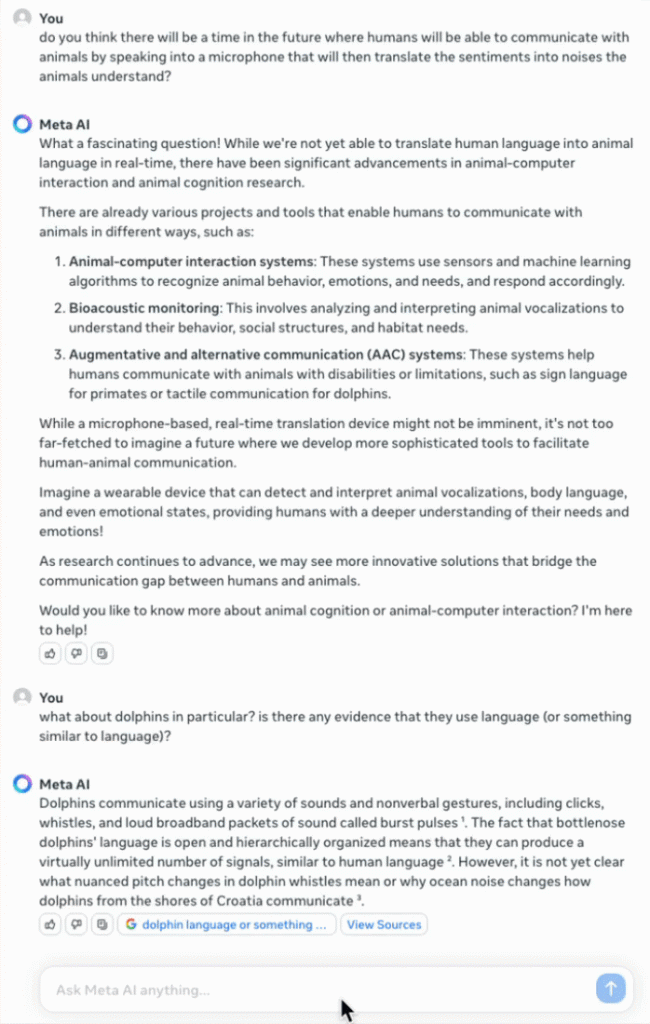Hello, everyone. We need to speed run today’s newsletter. We got off to a late start. Let us explain
We use Online Alarm Clock and Kuku Klok on the days we cannot afford the luxury of hitting snooze a few times before getting out of bed. They’re internet-based alarms that you can set for any time. We like them because they force us to get out of bed and walk to the computer to make the loud, abrasive noises stop.
It’s a foolproof system, right? Wrong. We still can’t wrap our minds around how this happened, but a pair of Google Pixel Buds Pro connected to our computer overnight. They were inside of their (closed) case. The microorganisms that cohabitate with our earbuds in the plastic shell they share may have appreciated the wake up call, but it outraged us. We’re not upset anymore though– Google struck “don’t be evil” from its code of conduct six years ago. We should’ve seen this coming.
On the subject of evil, Meta made a big announcement yesterday. It released Llama 3, the latest iteration of a large language model that’s been in the works for a few years. You can use it without being logged into Facebook, although your conversation history won’t be stored if you use it anonymously. Actually, let’s rephrase that. Your conversations will certainly be stored somewhere in a Meta server farm. It’s just that you won’t have a way to revisit any “conversations” you have with Llama 3 that took place while you weren’t signed into Facebook.
We asked Llama 3 a bunch of questions and didn’t find any obvious faults in the answers it gave us. We didn’t go out of our way to challenge it with guideline-violating edge cases, but we certainly asked it questions that do not frequently come up in the day-to-day discussions that most people have.
 We especially like Llama 3’s clean “view sources” layout. Unlike many other generative AI models, the sites it links to are often aimed at non-experts. When we asked if it could foresee a time in the future when humans and animals could communicate with each other using translation software, it cited a Medium post and a page on oceanbites.org about the 2020 discovery of different dolphin accents. When we posed similar questions to Claude and ChatGPT, they linked to impenetrable academic studies.
We especially like Llama 3’s clean “view sources” layout. Unlike many other generative AI models, the sites it links to are often aimed at non-experts. When we asked if it could foresee a time in the future when humans and animals could communicate with each other using translation software, it cited a Medium post and a page on oceanbites.org about the 2020 discovery of different dolphin accents. When we posed similar questions to Claude and ChatGPT, they linked to impenetrable academic studies.
 Pivoting back to Google, we have been expecting to announce the end of its March 2024 core update for over a month. It’s still rolling out, now officially on day 46. Many websites have experienced volatility in both directions, seeing their traffic rise for a while, only to fall off a cliff a few days later. It won’t make sense to provide a summary until the dust settles, but we are continuing to monitor it.
Pivoting back to Google, we have been expecting to announce the end of its March 2024 core update for over a month. It’s still rolling out, now officially on day 46. Many websites have experienced volatility in both directions, seeing their traffic rise for a while, only to fall off a cliff a few days later. It won’t make sense to provide a summary until the dust settles, but we are continuing to monitor it.
Our first closing link is a Search Engine Roundtable article from Wednesday. If you do want some March 2024 core update coverage that is being written while it is still ongoing, this is the link to click. Next, we’ve got Welcome To Pricing Hell from The Atlantic. It’s an article that suggests that commerce is headed to a place where things like add-on fees and surge pricing will make static prices a thing of the past. There is an audio version of the article at the top of the page, so you can load it up and hit the play button if you’d prefer to have someone else read it to you. It’s incredibly interesting and we recommend consuming it in one way or another. Finally, this Hootsuite strategy guide to organic versus paid social media examines the value of the two strategies and the uses cases that make the most sense for choosing one over the other.
Bye.

